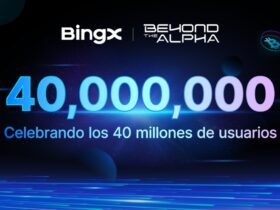Last cycle, browsing the web3 left me with considerable “technical fatigue.”
Cross-swaps are exchanges that allow you to move from one token to another between two different networks.
My first steps on the path of cryptoactives took a direction opposite to that recommended by history: first of all Bitcoin in depth, I got to know “web3”.
The web3, this interactive dimension of the internet, captured my attention, especially because it functioned as an economic and service layer. different from the traditional one, dominated by PayPal, Skrill, Neteller and credit cards. In particular, PayPal gave too many problems to pay and do things.
My attention was captured because it was an accessible, quick and simple way (which did not prevent me from having to read tutorials) to access an unknown economic world. One that was more interconnected and much freer than the e-commerce traditional. In this economic dimension, more things were done, some very strange and counterintuitive, by the way, that I was unaware of and wanted to understand.
Driven by this newly discovered hobby and by the knowledge that in this economic dimension you could make money, I tried and did everything on web3:
- I created and used multiple bitcoin and cryptocurrency wallets, such as Green, Phantom, MetaMask, Trust Wallet, Enjin Wallet, Coin98, Binance Chain Wallet or Terra Station.
- I did flipping of NFTs, some of which I sold for more than they had cost me and others are still in my wallets, gone to zero.
- I participated in ecosystems of gaming such as Immutable
- I tried NFT marketplaces, such as Open Sea, Altura Marketplace or Babylons.
- Holdee microcaps unknowns, such as Dark Frontiers (DARK), Planet Sandbox (PSB), Mines of Dalarnia (DAR), Dreams Quest (DREAMS), Blockchain Monster Hunt (BCMC), Shill Token (SHILL), Pegaxy (PGX), Mech Master (MECH ), among others.
- I used cryptocurrency bridges, to pass tokens from one chain to another, such as Allbridge Core, Polygon Bridge or Chain Port.
Especially the latter, I am referring to the use of bridges, was the most tedious part of the web browsing process with cryptocurrencies. Often, I could only move a very select group of cryptocurrencies from one network to another, which is why I had to sell my prized holdings in order to transfer the value. Then, the price of “bypassing” them cost more than a swap or normal exchange on any decentralized exchange.
Not being enough, the minimum limits for using the bridges were prohibitive: I had to spend 50 or 100 dollars, when I just wanted to spend a few dollars and mess around with the Internet a little. Although I was willing to battle and overcome these technical barriers at the beginning, there came a time where they tired me; The process of calculating all the steps that would have to be taken to reach a network, or to move crypto assets from one place to another, became tedious.
With the arrival of a bear market In the midst of “technical fatigue” I found no other reason to continue browsing the web3. With the arrival of this bear market, I got to know Bitcoin in greater depth, which gradually made me “cryptoconservative”.
The good thing is that this technical fatigue no longer has to be such. Recently, DEXs considered traditional brought their windows to the market cross-swap. It is the case of Uniswapwith UniswapX, 1Inchamong many other DEXs.
Even bridging services, such as Allbridge Core, now offer an alternative to their classic version allowing stablecoins to be exchanged between chains. In general, cross-swap chain processes seem to be replacing, or at least offering a feasible alternative, to tedious bridging.
The cross-swap either cross-chain They are types of exchanges that allow one cryptocurrency to be passed to another between different networks, without the need for traditional bridges. This process is done using smart contracts, which greatly automates the exchange process. Compared to bridges, they are more accessible and faster, as they work like a normal exchange between cryptocurrencies within a DEX; They do not require intermediaries, which are usually abundant in traditional bridges; and they are just as cheap as a normal transaction.
Now, we are in an interesting new phase of the bitcoin and altcoin cycle; The possibility of finding “web3” attractive is once again real. Perhaps it is a good time to venture and navigate again what it has to offer.
One of the reasons that motivates me to do so is, precisely, the cross-swaps. It doesn’t seem like a big deal, but knowing that chain processes will be easier makes the invitation to return to web3 after several years more attractive.
Disclaimer: The views and opinions expressed in this article belong to its author and do not necessarily reflect those of CriptoNoticias. The author’s opinion is for informational purposes and under no circumstances constitutes an investment recommendation or financial advice.






Leave a Reply